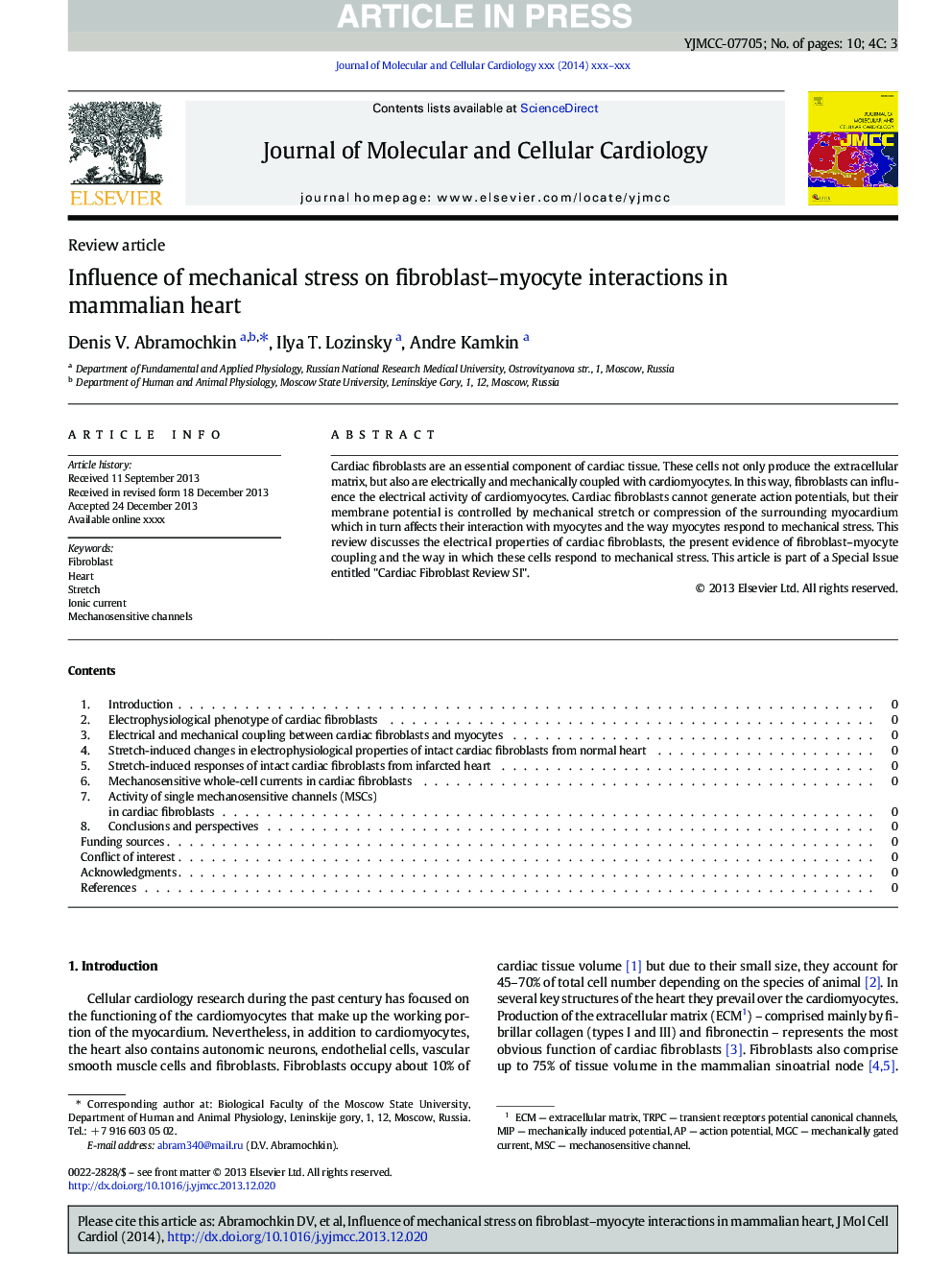| Article ID | Journal | Published Year | Pages | File Type |
|---|---|---|---|---|
| 8474906 | Journal of Molecular and Cellular Cardiology | 2014 | 10 Pages |
Abstract
Cardiac fibroblasts are an essential component of cardiac tissue. These cells not only produce the extracellular matrix, but also are electrically and mechanically coupled with cardiomyocytes. In this way, fibroblasts can influence the electrical activity of cardiomyocytes. Cardiac fibroblasts cannot generate action potentials, but their membrane potential is controlled by mechanical stretch or compression of the surrounding myocardium which in turn affects their interaction with myocytes and the way myocytes respond to mechanical stress. This review discusses the electrical properties of cardiac fibroblasts, the present evidence of fibroblast-myocyte coupling and the way in which these cells respond to mechanical stress. This article is part of a Special Issue entitled "Myocyte-Fibroblast Signalling in Myocardium."
Related Topics
Life Sciences
Biochemistry, Genetics and Molecular Biology
Cell Biology
Authors
Denis V. Abramochkin, Ilya T. Lozinsky, Andre Kamkin,
